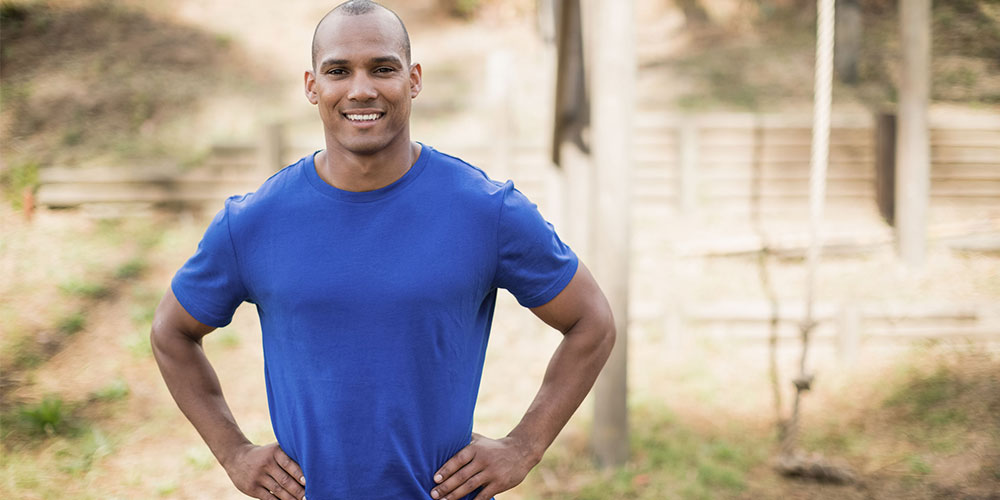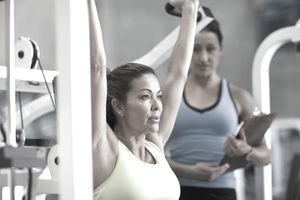
The salaries for personal trainers vary in Utah. The certification and the location of the training facility will affect the pay. Premium facilities typically have a higher paying clientele. Your salary is likely to be higher if certified personal trainer. Offering performance client training can help you earn even more. Read this article for more information.
Salary range
The average salary for a Utah Personal Trainer is $19,946 per year. An average salary for a Utah Personal Trainee is $19946, but it can vary depending on experience, your skill set and your location. Utah has relatively low job openings for Personal Trainers, but that should not discourage you. Still, you'll be able to earn a good living in a beautiful state.
University of Utah offers the bachelor's degree program in kinesiology. This focuses upon how physical activity can affect human health, and society. You can become a personal or health trainer with this degree. If you desire, you can even earn your MS.

Localities
You have many options if you are looking to make a career out of being a personal coach in Utah. If you're an exercise enthusiast, you can work in health clubs or in your own business. Foothill Personal Training is an example of a company that employs 11 people with college degrees and professional certifications.
Depending on the type of personal training program you need, you can also choose to work with a group of people. These professionals often specialize in training partners or groups. These sessions are usually more affordable if you have to train multiple people.
Session charges
In Utah, a private personal trainer will charge $29 to $166 per session. Sessions last approximately an hour. Professional athletes or celebrities may require trainers to charge more. Some trainers may charge more for weekends or during peak hours. According to American Council on Exercise, the average annual pay for a fully-time personal coach is $52,000.
Salaries will vary depending on the training location. Utah is not the only state where some trainers are paid more. West Jordan is 14% less than Layton in terms of the average salary. The low cost of living in Utah is a major factor to consider if you're thinking about a career as a personal trainer. Personal trainers may offer partner training sessions or small group training sessions, but most work with individual clients. One-on-one attention is possible with individual sessions.

Certification
Many Utahns have been certified personal trainers. They are usually employed at local fitness and health clubs. They are also employed by national brands like 24 Hour Fitness. In rural areas, however, there is a smaller demand for personal trainers. Are you interested in becoming a personal coach? Utah is the perfect place to obtain your certification.
There are a number of steps to becoming a certified trainer. First of all, you need to be at least 18 years old. Additionally, you should have a high school diploma. Additionally, you will need to have first aid and CPR certification. It is possible to become certified without having to complete a college degree. To become certified, you will need to complete courses in exercise science, human physiology, and exercise technology.
FAQ
Is exercise good for me?
Yes. Regular exercise will help to reduce weight by burning more calories. Regular exercise can help you burn calories even when your metabolism is not high.
What does nutrition do for your body?
By providing all the nutrients necessary for growth and development, nutrition helps your body function well. It is important to eat a balanced diet, rich in fruits and veggies, lean proteins, whole grain, and healthy fats.
When I exercise, should I consume alcohol?
It is important to limit your alcohol intake while you are working out. A moderate amount of alcohol, one drink per day, may be beneficial for endurance during exercise. It may also reduce fatigue from exercise and muscle aches.
What is the importance and benefits of good nutrition for your health?
We need to eat well for our health and wellbeing. Healthy eating includes whole grains, fruits, vegetables, lean protein, dairy, and other healthy foods. Eating nutritious foods helps us stay fit and active, which leads to better overall health.
Do I need to eat before working out?
No. You don't need to eat anything before working out. You might be hungry after a workout, so you may want to snack on fruit or yogurt.
Statistics
- One study showed that adults who watch more than 4 hours of television daily had an 80% higher risk of death from cardiovascular disease. (heart.org)
- Globally, 28% of adults aged 18 and over were not active enough in 2016 (men 23% and women 32%). (who.int)
- Globally, 81% of adolescents aged 11-17 years were insufficiently physically active in 2016. (who.int)
- In 2018, the World Health Assembly agreed on a global target to reduce physical inactivity by 15% by 2030 and align with the Sustainable Development Goals. (who.int)
External Links
How To
How to Burn Belly Fats Faster
Belly Fat is often considered a problem for those who want to lose weight. When you stop and think about it, Belly Fat can actually be a blessing. It's the amount of fat stored around your stomach that protects your organs from getting damaged. Let's look at how to rapidly lose belly fat.
Lack of exercise and stress are the main reasons we store body fat. The cortisol hormone stimulates stress which makes us hungry. Cortisol levels are increased by insulin. Insulin then stores excess calories as fat. A lack of sleep leads to adrenaline being released into the system which causes an increased appetite. Exercise helps to break down these extra calories.
There are many ways to reduce belly fat. Depending on your budget, you can try each one. Here are some tips to help you get rid of belly fat quickly.
-
Reduce the amount of food you eat. Eat smaller meals throughout the day rather than eating three big ones. This will result in fewer calories.
-
Make sure you drink plenty of water. Water flushes out toxins, and keeps your body hydrated. Also, drinking water before every meal will keep you feeling full longer so you won't overeat.
-
Avoid unhealthy snacks. If you're looking for quick fixes, snack foods like chips, cookies, candies, etc. It might sound tempting. These sweet treats can be tempting, but they are high in empty calories and sugar. Choose healthier alternatives such as whole grains, vegetables, fruits, seeds, nuts and seeds.
-
Three times per week, strength training is recommended. Strength training builds muscle mass which burns more calories even while resting. It strengthens bones muscles ligaments, tendons and the heart.
-
Stretching and walking are good habits. Stretching increases flexibility and mobility. It also reduces back pain. Walking is a great way of burning calories, especially when you do it for just 30 minutes.
-
Reduce alcohol intake. Reduce alcohol intake. Alcohol is a waste of calories and has no nutritional value.
-
Slowly lose weight. First, determine your current weight. Then, add 5% to 10% to your body weight to get your ideal weight. Once you have calculated your target weight, start reducing calorie consumption by 500-1000 calories daily until you reach your goal.
-
Avoid processed foods. These foods are high in salt, sugar, preservatives, and other harmful ingredients. Processed foods are often very convenient but don't provide enough nutrients to keep you healthy.
-
Don't skip breakfast! Consuming breakfast increases concentration, memory and energy levels. You should have protein (such as eggs) and fiber (such as oats) for breakfast.
-
Have regular bowel movements. Constipation and irregularity cause bloating and gas. Drink plenty of water to prevent gas and fiber ingestion.